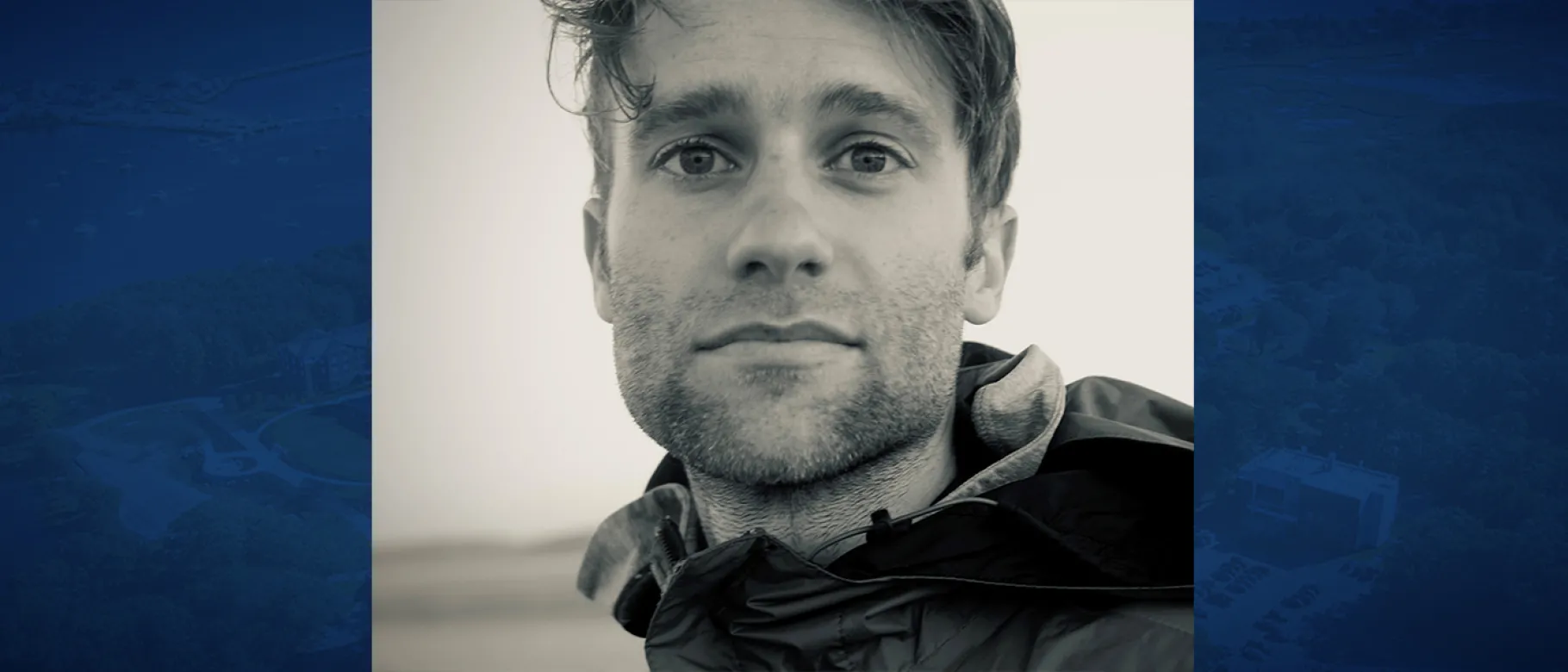Incoming nursing student hopes to 'pay it forward' following treatment for traumatic brain injury

Chris Barr doesn’t remember the accident.
It was September 2019, and Barr was in Boise, Idaho, for work. While there, the then 27-year-old from Stratham, New Hampshire, decided to go mountain biking with a colleague.
What happened next changed his life forever.
“I woke up in a hospital room. I was confused. I couldn’t talk, and I couldn’t move the right side of my body,” he recalled in an essay to the Brain Injury Association of America (BIAA). “My wife told me that I was in a terrible mountain biking accident, and that it had been two and a half weeks.”
Barr suffered a severe traumatic brain injury (TBI) called a diffuse axonal injury, the chance of recovery from which is slim. He was confined to the hospital for more than two months, with several months of rehabilitation — including occupational, physical, and speech therapies — that followed.
Through his arduous recovery, Barr emerged from what he described as a “sea of fog” with a newfound outlook on his professional career.
Although the already successful engineer had been considering a switch to the medical profession for some time, he hadn’t made any firm decisions — but his time in critical care only solidified his judgment: he would become a nurse.
“My interest in health care became a persistent calling I could no longer ignore, and nursing, specifically, became the profession I saw for my future,” Barr said in an interview. “I thought of pursuing many different paths in health care, but I kept coming back to wanting to provide care for people when they’re at their most vulnerable like so many people had done for me.”
To complete his dream of “paying it forward” through nursing, Barr will begin studying for his Bachelor of Science in Nursing at the University of New England this May with the goal of working in critical care, an emergency department, or in neuroscience — the three places with which he has experience as a patient.
A five-year Portland resident, Barr said his decision to attend UNE came naturally. He said he is both nervous and excited for the future to come and said he will hold his personal and professional experiences close when he starts his new career.
“I have no doubts that a future in nursing will be rewarding but also come with hardships,” said Barr. “But that’s also just what life is: it’s coming to terms with the fragility of life and the reality that tomorrow is never promised.”
Barr said he has not been mountain biking since the accident, though he has continued road cycling, even completing a century ride — a 100-mile cycling trek — last year.
Though the recovery was difficult, Barr said he is grateful for the friend who biked with him the day of his accident; the first responders who transported him to the hospital; for his family and his wife, Alex; and for the outpouring of support from his friends — which he said is still happening to this day.
“This experience has made me think more that everyone I pass on the street is dealing with something under the surface because the symptoms of a TBI are so invisible,” he said. “I am very grateful to anyone who had an impact on this process and can only hope to pay it forward."